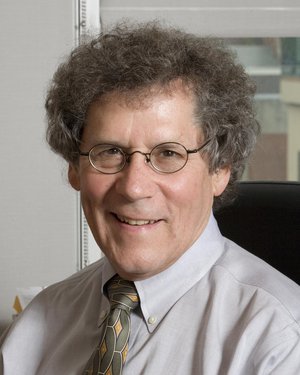Research Summary
In the broadest sense, my research interests include understanding all aspects of the role of genetic factors in human health and disease. In particular, our studies involve clinical, biochemical, molecular and therapeutic aspects of specific human genetic diseases as well as more global studies of the network interactions and consequences of the genes and proteins implicated in human disease.
In the past, our lab has focused primarily on rare monogenic disorders including inborn errors of amino acid metabolism as well as various human retinal degenerations. For example, we have conducted extensive molecular, biochemical and structural studies of the enzymes of proline and ornithine metabolism defining the biochemical and molecular bases of several. Most notably, we showed that deficiency of ornithine-delta-aminotransferase (OAT) causes a blinding, chorioretinal degeneration known as gyrate atrophy of the choroid and retina (GA). We also produced a knockout mouse deficient in OAT, showed that it develops a retinal degeneration and used this model to develop and validate treatments. Similarly, we are interested in inborn errors of biogenesis and function of the peroxisome, a ubiquitous sub-cellular organelle whose protein components participate in numerous metabolic pathways. Using a variety of strategies, we identified the genes responsible for several (>10) genetic disorders of peroxisomal biogenesis (e.g. Zellweger syndrome). We also have a special interest in peroxisomal ABC transporters and have produced knockout mice for the genes encoding some of these to elucidate the function of these transporters and their role in human genetic disease.
Recently, we have focused most of our efforts on understanding the genetic contribution to neuropsychiatric disease, especially schizophrenia. Working together with our collaborators Ann Pulver, Dimitri Avramopoulos and Gerry Nestadt, we have utilized a variety of whole genome approaches to search for genetic variants contributing risk for these disorders. Currently we are performing extensive studies of the genes in 10q22-23 and 8p21; we have found both linkage and association evidence for one or more schizophrenia susceptibility genes in both these regions. Our studies include extensive high throughput genotyping and sequencing, functional evaluation of coding variants and variants in candidate regulatory sequences and development and characterization of mouse models for the strongest candidates. The overall all goals of these studies are to identify the genes and the causative variants contributing risk and to use this information to identify key biological systems involved in the causation and pathophysiology of these disorders. We will use this information to search for additional risk genes and environmental variables as well as for the rational development of therapies.
Selected Publications
View all on PubMed
Florwick A, Dharmaraj T, Jurgens J, Valle D and Wilson KL: LMNA sequences of 60,706 unrelated individuals reveal 132 novel missense variants in A-type lamins and suggest a link between variant p.G602S and type 2 diabetes. Front Genet 8: 79, 2017
You J, Sobreira NL, Gable DL, Jurgens J, Grange DK, Belnap N, Siniard A, Szelinger S, Schrauwen I, Richholt RF, Vallee SE, Dinulos MBP, Valle D, Armanios M, Hoover-Fong J: A syndromic, intellectual disability disorder caused by variants in TELO2, a gene encoding a component of the TTT complex. Am J Hum Genet 98: 909-918, 2016
Boeke JD, Church G, Hessel A, Kelley NJ, Arkin A, Cai Y, Carlson R, Chakravarti A, Cornish Vw, Holt L, Isaacs FJ, Kulken T, Lajoie M, Lessor T, Lunshof J, Maurano MT, Mitchell LA, Rine J, Rosser S, Sanjana NE, Silver PA, Valle D, Wang H, Way JC and Yang L: The Genome Project – Write. Science 10.1126/science.aaf6850, 2016
Sobreira NL and Valle D: Lessons learned from the search for genes responsible for rare Mendelian disorders. Mol Genet Genomic Med 4: 371-375, 2016
Zeledon M, Taub M, Eckart N, Vernon H, Szymanski M, Wang R, Chen P-L, Nestadt G, McGrath JA, Sawa A, Pulver AE, Avaramopoulos D and Valle D: Identification and functional studies of regulatory variants responsible for the association of NRG3 with a delusion phenotype in schizophrenia. Mol Neuropsych 1: 36-46, 2015.
